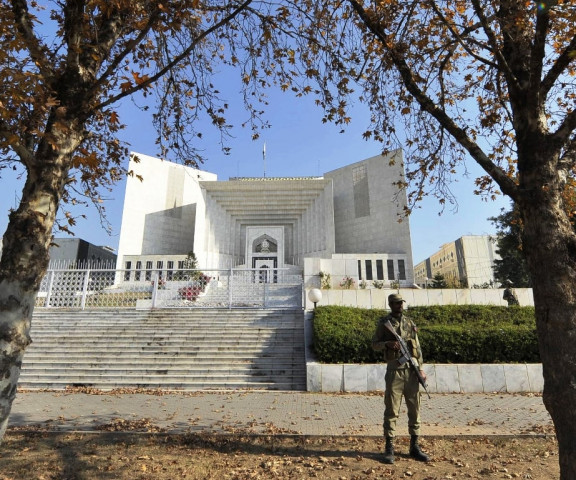Upping the ante?
There is nothing wrong in asking the judges and the generals to go through the process of accountability.

On the face of it, there is nothing wrong in asking the judges and the generals to go through the process of accountability that the politicians are required to submit to. In fact, it seems that this inclusion was in abeyance and should have been carried out wisely when relations between the two pillars of the state were not so glaringly bad. Today, as the Gilani government feels the pressure from various quarters on the memogate affair, despite the fact that it has been unprecedentedly pliable to the strategic dominance of the military, it has decided to stand up to a challenge that bids fair to unseat it. At the popular level, the political implication of the continuing squabble between the institutions of the state is not lost sight of.
The superior judiciary began asserting itself towards the end of the Musharraf regime and this intensified under the PPP government which was tardy in restoring the apex court back to its pre-Musharraf suspension position. The policy flaw was apparent on the part of the PPP leadership because, the restoration of the judiciary had become a cause celebre with civil society demonstrating on behalf of the fired judges. The opposition PML-N took the populist position and became a champion of the restoration. When the Court returned, its activism escalated through the use of the suo motu jurisdiction; and the executive — partly because of its own failings and inability to deliver good governance — became the primary target. The Constitution gave the Court the jurisdiction to intervene and it did, gradually laying its activism open to interpretation — certainly from elements within the PPP or sympathetic to it — that it was lacking in restraint.
If India is any precedent in judicial activism, one must note that an activated higher judiciary during Prime Minister Manmohan Singh’s tenure in office has had the wisdom to tone down its earlier interventionist trend. But this did not happen without the tension and confrontation that was on the cards right from the beginning. Leading Indian lawyer, AG Noorani described it thus in an article he wrote in 2009: “A conference of chief ministers and chief justices of the high courts was held in New Delhi on August 16, which Prime Minister Manmohan Singh and the chief justice of India, Justice KG Balakrishnan, attended. At least, two of them expressed concern over the manner in which courts summoned senior government officers to appear in court over minor issues”. The judiciary-PPP quarrel has become politicised and this is not good for Pakistan. Everyone knows that the PML-N went to the Supreme Court as part of its new policy of dismantling the government before the PPP can obtain a majority in the Senate in March 2012. It must be said that the honourable Court has conducted itself carefully, strictly within the ambit of law, but down in the streets of Pakistan, the views are divided. Because of this, any punishment for contempt awarded to the recklessly outspoken members of the PPP will be interpreted politically, just as will be the latest resolve by the government to force the judges and generals to declare their assets.
Published in The Express Tribune, January 6th, 2012.














COMMENTS
Comments are moderated and generally will be posted if they are on-topic and not abusive.
For more information, please see our Comments FAQ